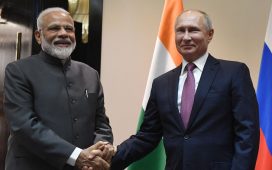Labour likely to win with ‘largest majority this country has ever seen’, Tory cabinet minister Mel Stride claims

Andrew Sparrow
Good morning. I’m Andrew Sparrow, taking over from Helen Sullivan.
Mel Stride, the work and pensions secretary, has been the lead voice for the Conservative party on the morning broadast round during the election, but no one would claim that he is the most exciting politician in Britain. Today, though, he said something very striking. Election concessions normally come at around 4am on Friday morning, but on the Today programme Stride delivered what sounded very much like a formal concession of defeat. He told the programme:
I totally accept that, where the polls are at the moment, means that tomorrow is likely to see the largest Labour landslide majority, the largest majority that this country has ever seen. Much bigger than 1997, bigger even than the National government in 1931.
What, therefore, matters now is what kind of opposition do we have, what kind of ability to scrutinise government is there within parliament.
This is a huge claim. And it is an exaggerated one; the National government in 1931 had a majority of 492, which not even the wildest MRP poll is predicting this time round. But the mainstream expectation from pollsters is that Labour will have a bigger majority on Friday than Tony Blair did in 1997 (179). Last night the polling firm Survation said Labour was “99% certain to win more seat than in 1997”.
Of course, Stride is not saying this because he wants to provide Today listeners with impartial analysis. It is an escalated version of the Tory plan to talk up the prospect of a Labour “supermajority” and it has two aims: first, to encourage people worried about the prospect of a Labour majority to vote Tory; and, second (and perhaps more importantly – there are more people in this group), to encourage people who are not passionately anti-Labour to think they can safely stay at home tomorrow.
If you want to contact me, please post a message below the line (BTL) or message me on X (Twitter). I can’t read all the messages BTL, but if you put “Andrew” in a message aimed at me, I am more likely to see it because I search for posts containing that word. If you want to flag something up urgently, it is best to use X; I’ll see something addressed to @AndrewSparrow very quickly. I find it very helpful when readers point out mistakes, even minor typos (no error is too small to correct). And I find your questions very interesting too. I can’t promise to reply to them all, but I will try to reply to as many as I can, either BTL or sometimes in the blog.
Key events
Keir Starmer is visiting Wales, Scotland and England today. At his first stop in Camarthenshire he stressed that many voters were still undecided. This is from Sky’s Beth Rigby.
Starmer in Wales: “There are a lot of undecided voters, still lots of constituencies that will come down to a few 100 votes that’ll make the difference & people need convincing… to vote for change” > told by one figure there at least 60-70 seats that could still go either way pic.twitter.com/9TIZAceims
— Beth Rigby (@BethRigby) July 3, 2024
Starmer in Wales: “There are a lot of undecided voters, still lots of constituencies that will come down to a few 100 votes that’ll make the difference & people need convincing… to vote for change” > told by one figure there at least 60-70 seats that could still go either way
Is there such a thing as a supermajority?
A reader asks:
In UK election (sorry I’m from Australia) what is meant by a supermajority and why does it matter?
When Conservative politicians talk about a “supermajority”, they are just using the word to mean a very big majority (anything over 150 would reasonably count). In the British political system, a supermajority is not a real constitutional benchmark.
But in some countries a supermajority (such as two-thirds) is required for some types of constitutional change and the Tories (and the pro-Tory papers, which have adopted the phrase with enthusiasm) seem to be using the phrase repeatedly because, in the minds of some voters, it conveys the impression that a Keir Starmer government would have some special power to rig the system in its favour.
It wouldn’t, but it would not need such a power anyway; in the UK, a government with a decent majority can introduce sweeping changes relatively easily.
There are some minor exceptions. Under the Fixed-term Parliaments Act, a government needed two thirds of MPs to vote for an early election. But that law has now been abolished. And, as James Ball from the New European explains here, if Labour wanted to change the royal charter for press regulation, passed under the coalition but ignored by most big newspapers, it would need a two-thirds majority in the Commons.
Munira Wilson has defended Ed Davey’s decision to run an election campaign dominated by outdoor adventure photo opportunities, telling LBC the Lib Dem leader had struck a balance between “really serious issues” and “not taking himself too seriously, which I think politicians too often do.”
Asked if stunts like paddleboarding and bungee jumping had worked, Wilson, the party’s education spokersperson, said :
Well, we’re all talking about it and we are talking about the issues. I think he’s really taken himself not very seriously to shine a spotlight on serious issues.
She said Davey had highlighted issues like health, social care, sewage in rivers and seas, and the cost of living crisis.
Labour condemns harassment of its candidates and in pro-Palestinian areas
Yvette Cooper, the shadow home secretary, has condemned the harassment of Labour candidates and canvassers, amid reports of intimidation in pro-Palestinian areas across the country, Kiran Stacey reports.
Braverman attacks Sunak over Tories continuing to take cash from Frank Hester after racist comments row
There is more evidence of the fact that the Tories have, in practice, conceded the general election in the Daily Telegraph, where Suella Braverman, the former home secretary, has kicked off the inquest into what went wrong. As Helen reported in an earlier post (see 7.48am), Braverman’s main argument is voters have abandoned the Tories because they failed to “to cut immigration or tax or deal with the net zero and woke policies we have presided over for 14 years”.
But, in a passage that slightly undermines her “woke” argument, Braverman also criticises the Conservatives for continuing to accept money from Frank Hester after the Guardian revealed that he had made comments about Diane Abbott, at a private meeting with staff, that were widely condemned as racist.
Braverman says:
Reform demonstrably failed to vet its candidates properly and these people should be nowhere near public life. I’ve been on the receiving end of racism myself and it’s right that the PM called it out. But cries of hurt and anger look less powerful when the Conservative Party was perfectly happy to take the money from Frank Hester. Remarks about hating black women were glossed over in the name of filling our party coffers. I don’t follow the logic. Nor do the voters. Whatever “the smartest men in the room” might privately think, the public are not in fact mugs.
Most Tories condemned what Hester said, but hardly any of them said the party should stop taking money from him. (They justified accepting his donations on the grounds that Hester apologised, even though he just apologised for being offensive, not accepting that his words were racist.) Braverman is probably the first senior figure in the party to make this point. It is intended as a direct criticism of Sunak, whose allies regularly describe him as “the smartest man in the room”.
Labour likely to win with ‘largest majority this country has ever seen’, Tory cabinet minister Mel Stride claims

Andrew Sparrow
Good morning. I’m Andrew Sparrow, taking over from Helen Sullivan.
Mel Stride, the work and pensions secretary, has been the lead voice for the Conservative party on the morning broadast round during the election, but no one would claim that he is the most exciting politician in Britain. Today, though, he said something very striking. Election concessions normally come at around 4am on Friday morning, but on the Today programme Stride delivered what sounded very much like a formal concession of defeat. He told the programme:
I totally accept that, where the polls are at the moment, means that tomorrow is likely to see the largest Labour landslide majority, the largest majority that this country has ever seen. Much bigger than 1997, bigger even than the National government in 1931.
What, therefore, matters now is what kind of opposition do we have, what kind of ability to scrutinise government is there within parliament.
This is a huge claim. And it is an exaggerated one; the National government in 1931 had a majority of 492, which not even the wildest MRP poll is predicting this time round. But the mainstream expectation from pollsters is that Labour will have a bigger majority on Friday than Tony Blair did in 1997 (179). Last night the polling firm Survation said Labour was “99% certain to win more seat than in 1997”.
Of course, Stride is not saying this because he wants to provide Today listeners with impartial analysis. It is an escalated version of the Tory plan to talk up the prospect of a Labour “supermajority” and it has two aims: first, to encourage people worried about the prospect of a Labour majority to vote Tory; and, second (and perhaps more importantly – there are more people in this group), to encourage people who are not passionately anti-Labour to think they can safely stay at home tomorrow.
If you want to contact me, please post a message below the line (BTL) or message me on X (Twitter). I can’t read all the messages BTL, but if you put “Andrew” in a message aimed at me, I am more likely to see it because I search for posts containing that word. If you want to flag something up urgently, it is best to use X; I’ll see something addressed to @AndrewSparrow very quickly. I find it very helpful when readers point out mistakes, even minor typos (no error is too small to correct). And I find your questions very interesting too. I can’t promise to reply to them all, but I will try to reply to as many as I can, either BTL or sometimes in the blog.
The Today programme’s Mishal Husain asks Pat McFadden, Labour’s National Campaign Coordinator, how Labour would work with a far right government in France on small boats, if Le Pen is elected.
“It’s for other countries to elect their leaders, I’m focussed on our own election” he says.
“It’s an international problem and we have to work with whoever gets elected”, he says.
Asked if he accepts it will be a “serious challenge”, he says there will be “many serious challenges”.
The Today programme’s Mishal Husain asks McFadden, Labour’s National Campaign Coordinator, when people can expect to feel their circumstances have changed.
McFadden talks about the six first steps, but despite Husain’s prompting, doesn’t give a timeframe.
He believes in “under promise and over deliver”, but he doesn’t commit to a time frame.
Pat McFadden: I’ve had boiled eggs that have lasted longer than the Tory ‘show of unity’
Pat McFadden, Labour’s National Campaign Coordinator, criticised the “show of unity” said to be displayed within the Conservative Party when former prime minister Boris Johnson appeared at a rally on Tuesday night –and commented on Suella Braverman’s article in the Telegraph.
McFadden told Times Radio: “The show of unity, I’ve had boiled eggs that have lasted longer than this show of unity.
“Almost before he (Mr Johnson) was finished speaking, we had Suella Braverman in The Telegraph saying that it had all been a terrible mess. I think maybe that is the Conservatives’ problem, is that it is all quite late for Boris to now be throwing his weight behind a prime minister, when, I think – to borrow a phrase from Northern Ireland – even the dogs in the street know there’s not a lot of love lost there.”
Asked if he would “fear” going up against Mr Johnson as a campaigner or prime minister more than Sunak, he told the programme:
“I think Boris destroyed his credibility through the whole ‘partygate’ and destruction of standards in public life.”
He claimed that “people saw through the act a little bit” and realised in elected government “they want to know what the sense of direction is going to be”.
Labour slips behind SNP in new poll
Labour has slipped behind the SNP days before election day, a new poll suggests.
PA reports that a survey by Savanta for The Scotsman suggests 31% of Scots could vote Labour on Thursday, three points down on the last poll, while support for the SNP is unchanged at 34%.
According to analysis from Professor John Curtice, Labour, which won just one seat north of the border in the 2019 election, is on course for 22 Scottish MPs while the SNP would keep 24 seats.
The poll, carried out between 28 June and 2 July, suggests the Conservatives are on 15%, up one point, while the Liberal Democrats are at 9%, up two points on the last poll earlier in June.
The latest poll of 1,083 Scottish adults found 6% said they would back Reform UK, no change since the last poll, while the Greens were up one point at 3%, and 2% said they would vote for other parties.
Chris Hopkins, political research director at Savanta, said:
Our final Scottish voting intention before 4 July suggests the SNP is ahead of Labour, showing a modest improvement and potentially blunting their losses on election night.
If our results were reflected on polling day, John Swinney’s election as SNP leader looks like it will have come just in the nick of time.
That being said, Labour’s efficient vote, in particular around the central belt, will still mean it’s likely going to be a very good evening for Anas Sarwar and Keir Starmer.
Their majority is no longer dependent on Scotland, but they’ll want to squeeze the SNP as much as they can.”
On BBC Radio Four, Mel Stride was asked whether he thinks public services are better than they were in 2010.
“Yes, I think many of them absolutely are, despite Covid and the pressures that we faced with inflation, because of the war in Ukraine, etc,” he said.
Asked whether he had accepted that the Tories had lost the election, the Work and Pensions Secretary told BBC Radio 4’s Today programme:
I have accepted that where the polls are at the moment – and it seems highly unlikely that they are very, very wrong, because they’ve been consistently in the same place for some time – that we are therefore tomorrow highly likely to be in a situation where we have the largest majority that any party has ever achieved.”
We’re on the brink of a Labour landslide, says Tory minister
Work and Pensions Secretary Mel Stride has just told Times Radio, “there will be plenty of time” for “post-mortems” of the Conservatives’ performance after polling day, as well as “where the party goes in the future”.
He suggested his party was the only one that could “hold this (Labour) government to account” as he repeated Tory warnings of a “supermajority”.
He said “we are right on the brink of a very perilous situation” with a “very weak and marginalised opposition”.
Asked if he thought there was anything the Conservatives could have done during the campaign to increase support, Mr Stride told Times Radio:
Tempted though I am to come up with all sorts of speculations on this, I think we need to get through and out the other side of the General Election tomorrow, and then there will be plenty of time for us to do post-mortems and dissect what should or shouldn’t have been done in the past, or importantly where the party goes in the future.
…
We’re on the brink, probably, of the largest landslide we’ve ever seen in this country … what we have to have is some balance within our parliament.
…
I think we’re right on the brink of a very perilous situation.
Survation poll 99% certain of Labour landslide
A forecast by polling company Survation shows Labour winning 484 of the 650 seats in parliament, far more than the 418 won by the party’s former leader Tony Blair in his famous 1997 landslide win and the most in its history.
The poll of 34,559 people predicts Conservatives will win just 64 seats, which would be the fewest since the party was founded in 1834.
Labour is on course to win around 484 seats, according to the poll, more than it did when Tony Blair took office in 1997.
The polling company says a Labour landslide is “99% certain”.
Suella Braverman: ‘It’s over’
Former home secretary Suella Braverman has urged the Conservative Party to “read the writing on the wall” and “prepare for the reality and frustration of opposition”.
Writing in The Telegraph, Braverman says victory should no longer be the goal for the Tories.
“Thursday’s vote is now all about forming a strong enough opposition,” she writes.
“One needs to read the writing on the wall: it’s over, and we need to prepare for the reality and frustration of opposition.”
Braverman blames the situation on a fracture within the Conservative Party resulting from a rise in Nigel Farage’s Reform UK.
It is notable that Labour’s vote share has not markedly increased in recent weeks, but our vote is evaporating from both Left and Right.
The critics will cite Boris [Johnson], Liz [Truss], Rwanda, and, I can immodestly predict, even me as all being fatal to our ‘centrist’ vote.
The reality is rather different: we are haemorrhaging votes largely to Reform. Why? Because we failed to cut immigration or tax or deal with the net zero and woke policies we have presided over for 14 years.
We may lose hundreds of excellent MPs because of our abject inability to have foreseen this inevitability months ago: that our failure to unite the Right would destroy us.”
Braverman says the Tories need “a searingly honest post-match analysis”, “because the fight for the soul of the Conservative Party will determine whether we allow Starmer a clear run at destroying our country for good or having a chance to redeem it in due course.
“Indeed, it will decide whether our party continues to exist at all.”

Heather Stewart
Thursday’s general election looks likely to be a historic pivot: one of those long-remembered moments when the established order at Westminster is swept away by what Jim Callaghan, the victim of one such shift in 1979, called a “sea change in politics”.
Yet as Guardian reporters fanned out across the UK during the campaign to spend time talking to voters and non-voters in 15 varied constituencies for the Path to power series, they found precious little hope that things will be different come 5 July.
Every constituency had its own particular concerns that bubbled up repeatedly in conversation: in Waveney Valley it was unwanted pylons, in Burnley it was the Gaza conflict and in Clacton it was immigration.
But several common threads run through much of the reporting, forming a dark narrative about the state of Britain and its people as Labour prepares to take power.
Everywhere reporters went, the infrastructure that makes up everyday life, from GP surgeries to libraries to roads, has been eroded by more than a decade of underinvestment:
Can Starmer keep his family out of the spotlight?
Victoria Starmer joined Starmer on stage at the launch of Labour’s campaign, but has otherwise rarely been seen on the trail. Keir Starmer has said that if he’s elected, “she’s absolutely going to carry on working, she wants to and she loves it. It’s also good for me because it gives me an insight into the NHS.”
The Guardian’s Gaby Hinsliff, interviewed by Rupert Neate in today’s First Edition, says:
It’s 2024, I do not care who the PM is married to it shouldn’t matter,” she says. “We shouldn’t be talking about it; it only matters if there is a conflict of interest. I don’t take my husband to work, and I can’t think why anyone else should have to.”
“Grazia readers have moved on…They expect to see female politicians interviewed in their own right and in their professional capacity. If a leader can’t find a way to make themselves relatable without a spouse, perhaps they shouldn’t be a leader. It was also sad that Theresa May felt she had to explain why she didn’t have children, and disappointing that Andrea Leadsom [who challenged May for the leadership in 2016] suggested that having children made her a better choice to be prime minister. We should have moved beyond all this.”
The Starmers are fiercely protective of their children’s privacy.
“The degree to which they have kept their children out of [the spotlight] so far is impressive, and not something a PM has tried before,” Hinsliff says. “I really respect them for it, and wish them the best of luck trying to preserve it. But it is going to be difficult.”
Rishi Sunak has mostly kept his children out of the public eye, but they have been seen at some events including a street party on Downing Street to celebrate the King’s coronation, and he posted a photo of them on Instagram during his bid for the Tory party leadership in 2022. He also described them as “the experts of [the climate crisis] in my household”.
Welsh government commits to making lying in politics illegal

Steven Morris
The Labour-led Welsh government has committed to introduce “globally pioneering” legislation that would in effect make lying in politics there illegal.
Members of the Senedd described it as a historic moment that would combat the “existential threat” that lying in politics poses to democracy.
After a passionate and dramatic debate in the Welsh parliament on Tuesday evening, the government’s counsel general, Mick Antoniw, said the legislation would be introduced before the next Welsh elections in two years’ time.
He said: “The Welsh government will bring forward legislation before 2026 for the disqualification of members and candidates found guilty of deliberate deception through an independent judicial process.”
Antoniw said the practical details of how a law to tackle lying would work would need to be worked out and he called for cross-party cooperation.
Parties pitch for votes on final day of the campaign
With just one sleep to go, here is how party leaders are spending their last day before voting day – and the messages they’ll be trying to drive home:
Prime Minister Rishi Sunak will end his campaign trail in the South East. He has used th the word ‘supermajority’ in three tweets in the last hour. As in stop the Labour / tax-raising supermajority.
He has shared his fears of a Labour “supermajority” and said in an overnight statement: “If you are worried about an unchecked, unaccountable Labour government you can stop that by offering us your support so we can stand up for you and be your voice in the next Parliament.”
In a marathon final leg of his tour, Labour leader Keir Starmer will speak to voters in England, Scotland and Wales.
“We’re out in constituencies where we haven’t necessarily won before, because we think that many people are disillusioned with what they’ve seen in the last 14 years,” he told reporters on Tuesday.
“We’re a changed Labour Party and we’re constantly putting our case forward, still smiling, still with a spring in our step that we’re probably the only positive campaign left now.”
Liberal Democrat leader Sir Ed Davey will hit the road again to round off his stunt-packed campaign.
There is no time to slip into a Dryrobe and warm up after surf lessons on the Cornish coast, because party chiefs have several stops lined up on Sir Ed’s final pre-vote tour of southern England.
Wrapping up his party’s thread on care, which he has spoken about several times on the campaign trail, Davey said: “Throughout this campaign, I’ve been so moved by all the people I’ve spoken to or who have got in touch to discuss their experiences caring for loved ones.”
Reform UK leader Nigel Farage will take another trip to the Essex seaside constituency which he is contesting. Survation pollsters have said Clacton is the only constituency where Reform UK has a confident lead, but they could take 16 seats at an “upper end” estimate.
Scottish First Minister John Swinney has told voters some seats will be won or lost “by only a handful of votes”.
In his final pitch, he said: “Be certain about one thing – your vote will matter. It could make all the difference.”








